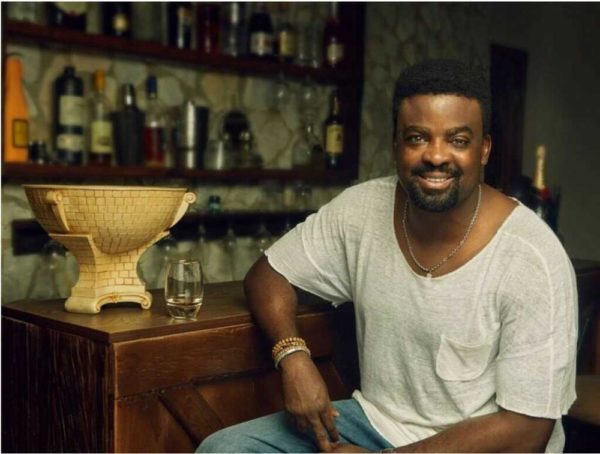“I don’t want people to see my films and just laugh, I want them to see my film and discuss it” – Kunle Afolayan covers Guardian Life Magazine

Known for his outstanding work in the film industry, Kunle Afolayan stands out as one of the most important film directors of our time. His resume includes directing as well as acting in the films
October 1st, Phone Swap, CEO and The Figurine, which won five major Africa Movie Academy Awards.
The movie producer covers Guardian Life magazine and he talks passionately about his love for culture, which is evident in most of his work, particularly October 1st.

Guardian Life had a few words with Kunle Afolayan on his journey to fame. See excerpts below.
On how he got into directing: When I was going to start, I was actually going to start as a filmmaker, then I reached out to some people who worked with my father in the past and some of them just thought I was a joke. Filmmaking is something you have to learn. Yes, it is an acquired skill but you can’t say, “Oh I have talent of being a filmmaker.” You have to learn, and with the camera you have to learn how to operate all these gears. It is a lot of processes. Going to them I was barely 20. I went to Tunde Kelani, I went to a few people. They told me, for you to be a filmmaker you have to learn it. You go to school but you look like you have a good face for camera, why don’t you start as an actor just like your father? Then he said we are working on Sunday, you can come for audition and I was picked. We did the film Saworoide in ’98. The production values were really good, it made a hit, I played a prince. It was a very good film and it gave me a lot of mileage. I was already working in a bank when we shot that film. After that it was difficult for me to do a lot because of my bank work.
On his creative process: I love culture. A lot of times, my heart skips when I remember that some of these things are going. I remember we don’t archive things in this country. I remember that in the nearest future my children won’t be speaking our language. So I said I want to do a small film set in a small location about a particular tribe. They don’t speak Yoruba, they don’t speak Igbo or Hausa, they speak a minority language. It was pretty difficult. Tunde Babalola who wrote the film gave me the synopsis for October 1st, that was not what I was looking to do, I was looking to do a small budget film, anything period of course will increase your budget. In re-enacting the period you need to spend a lot of money especially in a country where you don’t have archives. It was a bit difficult to shoot, because we had to travel to Ondo to all these places that depict what we were looking for but in the end we pulled it off.
On his type of movies: A lot of people are doing the wedding parties and trips to Jamaica and they are very commercial. I don’t make films for commercial reasons; I don’t want people to see my films and just laugh, I want them to see my film and discuss it. It doesn’t make those other films anything bad, it is just their style, my style is different.
Comments